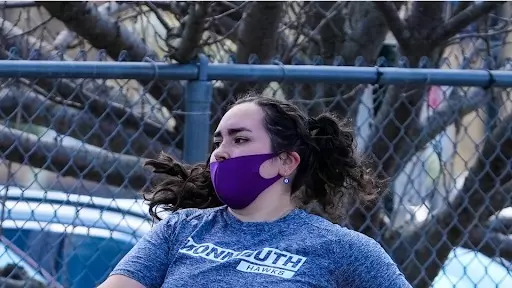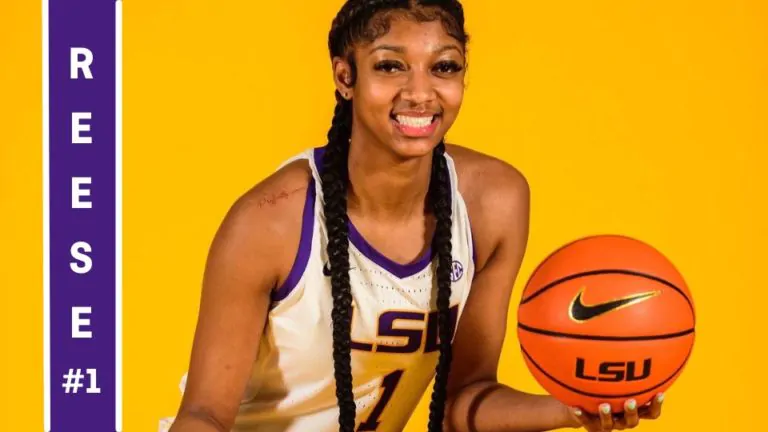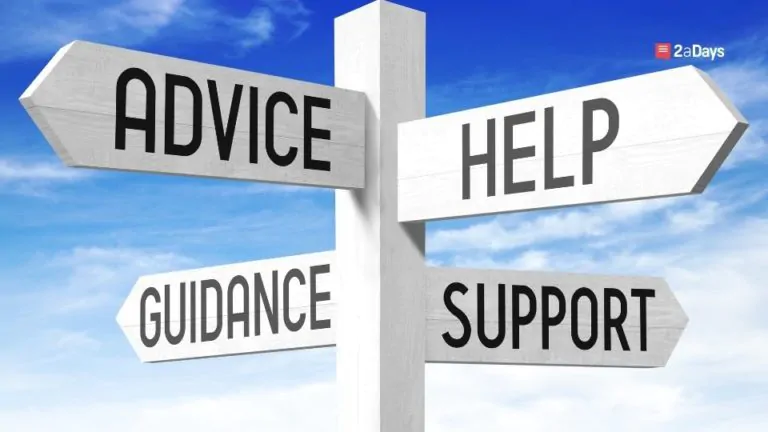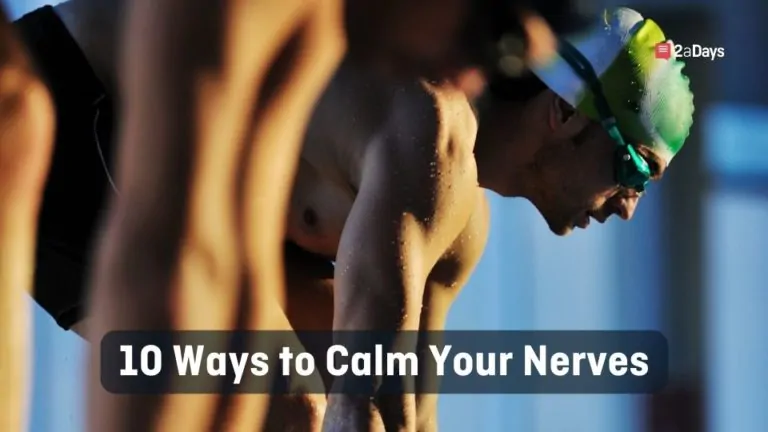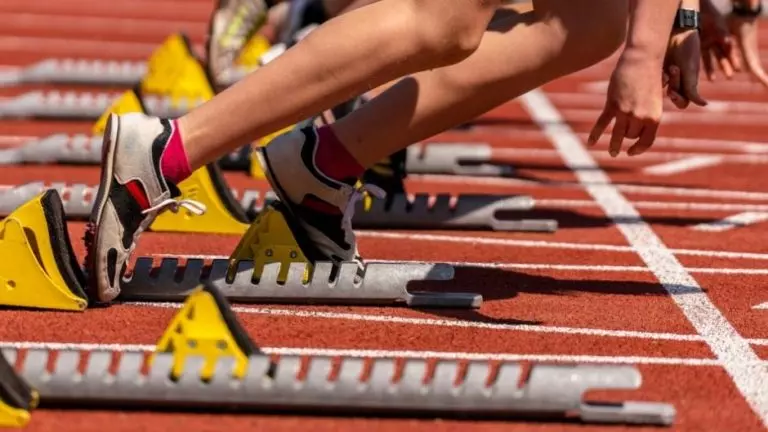Two years into the pandemic, it's effects created a completely different world. Arguably the most impacted group, young adults, are the most in danger to suffer mental health problems during this time. Depression can be a lonely road, but to all college students going through it, you're not alone. This is my story, and what I did to get to where I am today. Let us help you now.
In March 2020, the world seemed to turn upside down as sports seasons were canceled, travel banned, and quarantine mandated. With everything that happened between March and September of the same year, I was excited to see my teammates, live with my best friends, and get back into the routine I was so used to. Little did I know the issues I was about to face.
I came back to campus for the fall semester unaware that something was seriously wrong. At first, these feelings felt normal. Everyone was blue, being stuck inside, feeling unproductive, or even staying in bed for most of the day. I was healthy, back on campus, and surrounded by friends and family so, why was I sad? I didn't realize the burden I was faced with until I returned home for Winter Break that year.
Related: The Mental Health Manual: Book Review
What else is Winter Break for if not laying around, watching TV, and occasionally going to practice? I thought everything was going alright, but I felt numb. Hanging out with my family, seeing my friends, even playing with my dogs, I didn't care anymore. It got to the point where getting out of bed and being underwhelmed by the things that used to bring me so much joy didn't seem important anymore. I spent two or three days not leaving my bed, convinced this is how things were going to be. This is just the start of my story, and things got worse before they got better.
I went back to school, and was terrified to be on my own. My depression stayed, and the anxiety came right along with it. I had track, school, and friends to worry about. I couldn't find the strength to leave my room some days and it seemed impossible that I could possibly finish this semester, let alone the spring season. My mind was fighting against me. As I went to therapy, got on anti-depressants, and tried to connect more with my friends; the issues in front of me weren't going anywhere. I had to change. I had to accept the fact that I might not feel okay or in control of my situation, but I am not alone.
Related: We Need to Talk about Male Athletes' Mental Health
It can be really easy to look back and see the struggle as simple, but there were so many different aspects to finding out the best thing that worked for me. I want to be as transparent as I can in showing my journey because I find it can be kept secret at times to maintain appearances. My parents first spoke to me about this over that winter break. They immediately wanted to tackle the issue. This made it so much easier on my side. I was fortunate to sit back and just try to feel better. They would tell me what they found and ask if that's the direction I wanted to go in. Although not everyone has a support system like mine, there are still different things that can help you.
1. Figure out the Problem
The main priority was figuring out the problem. A great way to think about it is to tackle it from all sides. I needed to figure out my mental health, work on my physical health, and try to manage my University life as much as I could. I first reached out to the school. My dad had made it clear my grades were the least of my problems, but I was stubborn and wanted to finish all of my classes to the end.
2. Address Academics
We talked to Monmouth University's Department of Disability Services and I was put in touch with a Counselor and entrusted that all of my professors would be contacted about my situation. Nothing confidential was shared, but each professor reached out to me personally to talk about where I stand in their class and to show that they will support me through this. I could not describe the relief I felt just knowing that my professors understood my situation and I would be given extra time to complete late or future assignments. This made my experience much easier.
3. Talk to Coaches
The next step was to reach out to my coach. My event coach and I are pretty close, which made it easier to reach out to him about my situation and figure out the best way to handle everything. He was completely understanding, and even told me I had to get my mind right before anything else.
These first steps already made me feel so much better. Like I wasn't alone, I had those who genuinely cared for me and were ready to support me in whatever I needed.
Related: Rate your Coaches, Facilities and Campus Visits
4. Find a Therapist
Now was the time for me to work on myself. We broke up the problem into sections. I needed to look at my mental health and my physical health for the answers. Our first step was to find a psychologist to speak with. My step-mom put me in contact with a friend she knew who was a therapist. Fortunately, we immediately hit it off and she has been helping me through my issues ever since. We talk about how far I've come often and I sincerely could not have done it without her help. Although the results of therapy were not immediate, they are the most significant, especially now.
5. Tackle the Physical Aspect
Another important step for me was looking at how physical this depression was. Depression can come from hormonal imbalances, poor gut health, or any other outside conditions that negatively affect your body. I was able to take some blood tests and have meetings with my physicians to discuss the issue. Although I was seeing my therapist and working through some things, I was not happier yet. It was still really difficult for me to do the day-to-day things. My therapist, hearing this, recommended antidepressants. My parents were initially not enthused with this, but we ultimately decided it was worth taking that step.
Related: COVID-19 and the Mental Health Epidemic on Athletes
6. Start AntiDepressants
In order for me to be prescribed antidepressants, I would need a psychiatrist. Through a website my dad found, Skypiatrist, I was able to have a video call to discuss how I've been feeling and medication options. I was told I wouldn't feel a difference for two weeks, and the effects would not cure my depression, but lower the intensity of the bad feelings. I had to call every month to discuss any side effects and potential changes in dosage. I still take the medication today, but my psychiatrist, from day one, told me I would not have to be on them indefinitely.
7. Register my Emotional Support Animal
Another great step that I took was applying for an ESA, an emotional support animal. My dog was allowed on campus, in my apartment, and on school grounds. I worked with my counselor in the campusDisability Services who gave me all the paperwork and requirements to make it happen. All I needed was a written letter from my therapist and the consent of my roommates, and my dog was on campus, giving me even more support in-person.
Related: Mental Health Webinar with 2aDays, Brandon Marshall, The Virago Project, and The Hidden Opponent
8. Practice Self-Assurance
So many people struggled with their depression during the pandemic, and I never knew how much it affected me until we were all forced to quarantine. As much as my junior year was filled with tears, negative thinking, and hopelessness for the future, it was also filled with perseverance, humility, and acceptance of who I was becoming. I learned how to work with my faults instead of hating myself because I couldn't change. I was never going to live up to who I thought I needed to be, but who I am is pretty amazing anyway.
I gained so much confidence in who I was. This self-assurance did wonders for me in throwing too. I've always felt undeserving in my sport, like I didn't belong with the level of athletes that I trained with or competed against. Going through the hardest months of my life taught me how strong I really am and that there are so many people that support me in what I set out to do.
You are not alone! Reach out to those you can count on and know that it's okay to not be okay! You will get through this. Make sure to check out these links and hotlines if you feel you need some support:
National Suicide Prevention Lifeline: 1-800-273-8255
The Trevor Project: 866-488-7386
National Alliance on Mental Illness: 1-800-950-6264
7 Hotlines That Exist if You Need Them
How to Fight Depression
Natural Depression Treatments
Coping with Depression
Young People Hit Hardest By Loneliness And Depression During Covid-19
Thought this was helpful? Share your mental health journey at [email protected]
* Originally published on March 4, 2022, by Catherine Light
